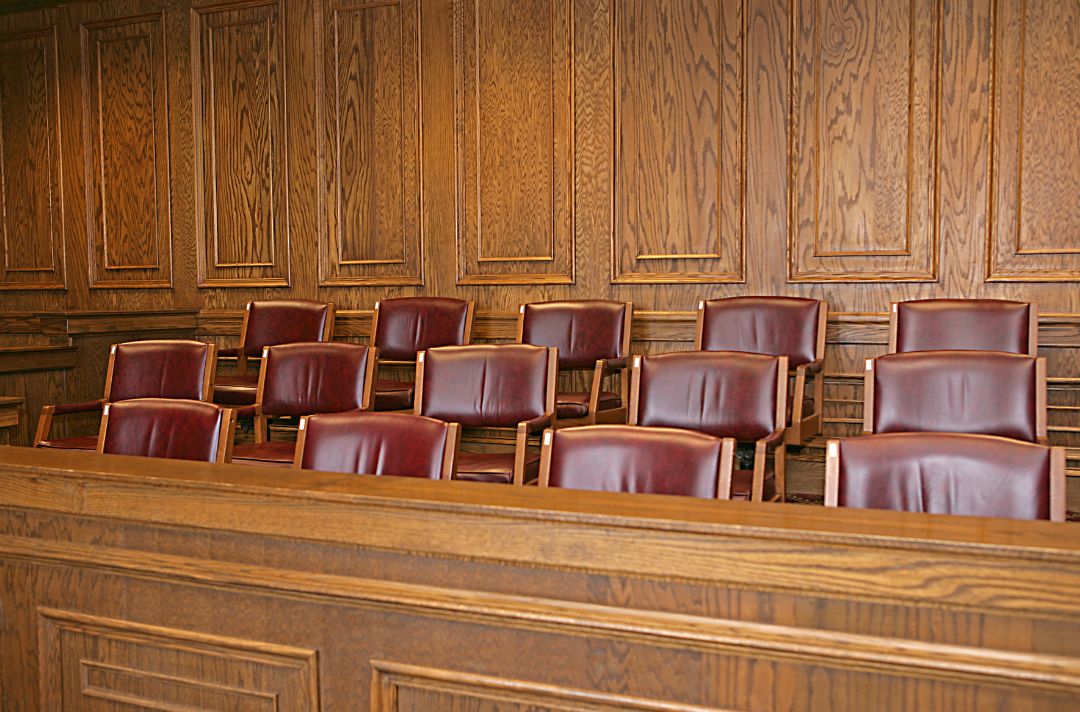
What Is a Grand Jury, and How Does It Work in Local DC Cases and Federal Cases?
One of the most critical but often misunderstood components of the criminal justice system is the grand jury. Unlike a trial jury, which determines guilt or innocence, a grand jury, both in local cases/courts and federal cases/courts, has a different function: it decides whether there is enough evidence when someone is arrested for a crime that is a felony, to charge someone with that felony crime formally. This article explains what a grand jury is, how it operates, and its significance in cases handled in Washington, DC and in the Federal courts.
How Does a Grand Jury Work?
A grand jury typically consists of 16 to 23 citizens chosen through a selection process similar to regular juries. At least 16 members must be present during the proceedings, and a minimum of 12 jurors must agree to issue an indictment, officially known as “returning a True Bill of Indictment.” Unlike a trial jury, which serves only to determine the innocence or guilt of a charged case at trial, a grand jury is empaneled for an extended period, usually up to 18 months, with the possibility of an extension if needed.
During the proceedings, prosecutors present evidence and call witnesses to testify. Defense attorneys are not allowed to be present during grand jury proceedings. However, if a witness subpoenaed by a Grand Jury appears in front of a Grand Jury and if they have an attorney to assist/represent them, the attorney can wait outside of the Grand Jury room.
Grand jurors can ask questions, examine evidence, and discuss whether the facts presented are sufficient to establish probable cause. If they conclude that the evidence meets this standard, they will issue/return an indictment—known as a True Bill of Indictment—formally charging the individual and setting the case in motion to be formally prosecuted.
Key Differences Between Grand Juries and Trial Juries
While grand and trial juries are integral to the justice system, their purpose and procedures differ. A grand jury decides whether charges should be filed in a felony matter, while a trial jury determines guilt or innocence when a case, whether misdemeanor or felony, proceeds to trial.
Furthermore, grand jurors serve for months, and their decisions do not have to be unanimous, unlike the verdicts of trial juries, which usually require a unanimous decision among all jurors.
The Role of Federal Grand Juries in Washington, DC.
In Washington, DC, grand jurors play a vital role in handling various complex and high-profile felony cases, including federal cases. The city is home to many federal agencies and government institutions, making it an extremely busy jurisdiction for cases involving:
- Government Corruption: Federal grand juries in DC often investigate allegations of bribery, fraud, and other misconduct involving government officials.
- White-Collar Crimes: Financial fraud, embezzlement, and insider trading cases are frequently presented before grand juries in DC.
- National Security Issues: Due to its proximity to federal intelligence and law enforcement agencies, DC grand juries may oversee cases related to espionage, terrorism, and threats to national security.
In these cases, federal prosecutors bring evidence before the grand jury, which evaluates whether the accused should be indicted and formally prosecuted.
The Importance of Secrecy in Grand Jury Proceedings
One of the most defining aspects of any grand jury, local or federal, is the secrecy of its proceedings. Unlike trials, where the public and media can observe, grand jury meetings are conducted behind closed doors. The only people allowed in the room are the jurors, prosecutors, witnesses, and court reporters. Even the person under investigation/the target of the charges is not present during the proceedings.
This secrecy serves several purposes:
- Protecting Witnesses: Confidentiality ensures that witnesses can testify freely without fear of retaliation.
- Maintaining the Integrity of Investigations: Keeping proceedings private prevents investigation targets from tampering with evidence or interfering with witnesses.
- Avoiding Harm to the Accused: If the grand jury decides not to indict, the accused is spared from unnecessary public scrutiny or damage to their reputation.
This confidentiality is crucial to ensuring a fair and effective process.
How Probable Cause Leads to Indictments
Probable cause is not as stringent a standard as the “beyond a reasonable doubt” requirement for criminal trials. Instead, it simply means there is enough reasonable evidence to believe a crime occurred.
If the grand jury agrees probable cause exists, it issues an indictment, formally charging the individual. It allows the case to proceed to formal prosecution, where the defendant can then begin to present their defense through counsel and engage in negotiations to decide whether the case may be dismissed, a plea should be taken (if offered), or if the case should be set for trial.
What Happens When There Is No Indictment?
Suppose the grand jury decides that the evidence does not establish probable cause. In that case, it issues a “No Bill,” meaning the suspect will not be charged. This decision is not made public, and prosecutors may continue their investigation if they believe additional evidence could strengthen their case. Sometimes, they may present the case to a different grand jury.
Criticism of the Grand Jury System
While the grand jury system is a fundamental part of the judicial process and justice system, it has faced criticism over the years. Some of the main concerns include:
- Prosecutor Dominance: Since grand juries only hear evidence presented by federal prosecutors, critics argue that this gives prosecutors significant influence over the process.
- Lack of Transparency: The secrecy of grand jury proceedings makes it difficult to ensure accountability and fairness.
- One-Sided Nature: Defense attorneys cannot participate in grand jury proceedings, leaving the accused without a voice during this stage.
Despite these criticisms, the grand jury remains essential for investigating and prosecuting serious crimes.
Conclusion
A grand jury, in both local and federal matters, plays a crucial role in the criminal justice system by determining whether there is enough evidence to charge someone with a crime that is a felony. In Washington, DC, where many high-profile and complex cases originate, the grand jury ensures that only cases with probable cause proceed to prosecution. Although the process is shrouded in secrecy, understanding how it works sheds light on this critical step in the legal system.
Whether you are a witness, the subject of an investigation, or simply curious about the system, knowing the grand jury’s role and function helps clarify its purpose and significance.
If you are arrested for a felony and facing possible indictment by a grand jury or have been subpoenaed to be a witness in front of a federal or local Grand Jury, be sure to call the district’s top DC attorneys, both locally and federally, at Ervin Kibria Law.




